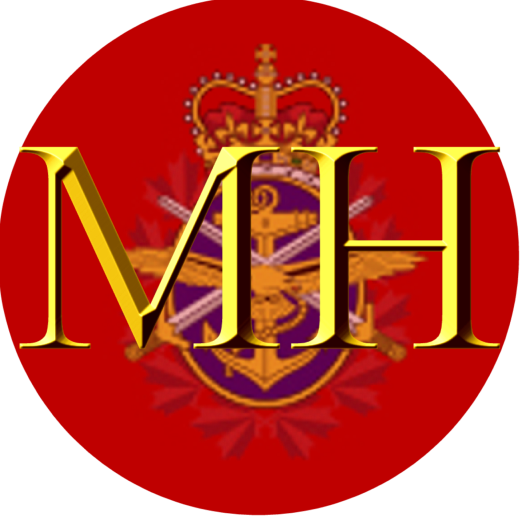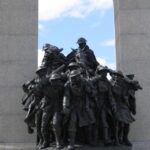1. Paul Heinbecker, “Getting Back in the Game: A Foreign Policy Playbook for Canada”
- Heinbecker, a former Canadian diplomat, provides an analysis of Canada’s foreign policy decisions, including the refusal to participate in the 2003 invasion of Iraq. The book offers insights into the political and military dimensions of Canada’s role during the Iraq War and the subsequent engagement against ISIS.
2. J.L. Granatstein, “Who Killed the Canadian Military?”
- Granatstein critiques the state of Canada’s military forces and explores how decisions surrounding the Iraq War, as well as other international conflicts, affected the Canadian military. The book provides a broader context of Canada’s military readiness and involvement in global conflicts.
3. Kim Richard Nossal, “Charlie Foxtrot: Fixing Defence Procurement in Canada”
- Nossal’s book focuses on the challenges Canada faces in terms of military procurement and defense policy. While not exclusively about the Iraq War, it offers insights into how military procurement and political decisions impacted Canada’s military capabilities during global conflicts like Iraq and Afghanistan.
4. David Pugliese, “Canada’s Secret Commandos: The Unauthorized Story of Joint Task Force Two”
- This book delves into the role of Canada’s elite special forces, Joint Task Force 2 (JTF2), which played a significant part in post-2003 operations, particularly Canada’s involvement in counter-terrorism operations in Iraq. The book provides insights into the secretive nature of Canadian military actions in the region.
5. Daniel Livermore, “Detained: Islamic Fundamentalist Extremism and the War on Terror in Canada”
- Livermore’s work focuses on Canada’s response to Islamic fundamentalism and the broader War on Terror, including Canada’s military actions in Iraq. It provides an analysis of Canadian foreign policy, counterterrorism efforts, and the political decisions surrounding military involvement.
6. Jean-Christophe Boucher and Kim Richard Nossal, “The Politics of War: Canada’s Afghanistan Mission and Public Opinion”
- Though focused primarily on Afghanistan, this book provides context for Canada’s approach to the Iraq War. The analysis of public opinion and political leadership regarding Canada’s military engagements applies to the country’s broader policies on international conflict, including Iraq.
7. Christian Leuprecht and Joel J. Sokolsky (eds.), “Mission Critical: Smaller Democracies’ Role in Global Stability Operations”
- This collection of essays explores the military contributions of smaller democracies, including Canada, in global stability operations. The book includes analysis of Canada’s role in post-2003 Iraq and the fight against ISIS, offering a comparative perspective on how Canada’s military involvement fits into broader international efforts.
8. Roland Paris and Taylor Owen (eds.), “The World Won’t Wait: Why Canada Needs to Rethink Its International Policies”
- This edited volume critiques Canada’s international policies, including its involvement in military conflicts like Iraq. The book discusses how Canada navigated its role in the 2003 invasion of Iraq and its subsequent involvement in the fight against ISIS, advocating for a reassessment of Canada’s foreign and military strategies.
9. Stephen M. Saideman, “Adapting in the Dust: Lessons Learned from Canada’s War in Afghanistan”
- While primarily focused on Afghanistan, Saideman’s analysis includes important lessons on how Canada approached its military strategy in Iraq. The book explores how Canada’s experiences in one war shaped its military policies and involvement in global conflicts like Iraq.
10. Gwynne Dyer, “With Every Mistake: Why I Wrote From Iraq to Canada’s Afghanistan”
- Dyer’s work provides commentary on the geopolitical consequences of Western involvement in Iraq and Afghanistan, including Canada’s refusal to participate in the 2003 Iraq invasion. The book offers insights into Canada’s military role in the post-2003 era and its involvement in anti-ISIS operations.
11. Michael Ignatieff, “The Lesser Evil: Political Ethics in an Age of Terror”
- Ignatieff’s work explores the moral and ethical implications of military intervention, particularly in the context of the War on Terror. Though not solely focused on Canada, it provides a framework for understanding Canadian decisions about military involvement in Iraq and other conflicts.
12. George A. MacLean, “Canada and the Global Politics of Globalization: The Warming of the Arctic, the Rise of ISIS, and Other Challenges”
- MacLean’s book explores Canada’s role in global politics, including its military response to the rise of ISIS in Iraq and Syria. It analyzes the military strategies Canada adopted in the post-2003 landscape and how Canada contributed to global anti-terrorism efforts.
13. Thomas Juneau, “Squandered Opportunity: Neoclassical Realism and Canadian Foreign Policy”
- Juneau’s book explores the missed opportunities in Canada’s foreign policy and military strategies during the post-9/11 era, including the Iraq War. The book critiques Canada’s approach to military engagement, particularly how it handled its military role in Iraq.
14. Andrew Richter, “Avoiding Armageddon: Canadian Military Strategy and Nuclear Weapons, 1950-63”
- While focused on an earlier period of Canadian military history, Richter’s analysis of Canadian military strategy provides context for understanding Canada’s broader approach to international conflicts like Iraq and the challenges of participating in global military coalitions.
15. David Pugliese, “Shadow Wars: Special Forces in the New Battlefields”
- Pugliese’s book delves into the role of special forces, including Canadian forces, in modern conflicts like Iraq. It explores the secretive operations carried out by Canada’s elite units in the fight against ISIS and other insurgent groups in the Middle East.
16. Dan Leger, “Daring Canadians: Heroes of Our Times”
- This book profiles Canadian soldiers, including those involved in post-2003 operations in Iraq. It highlights individual stories of Canadian military personnel who played key roles in the global War on Terror, offering a human perspective on Canada’s military contributions.
17. David Mutimer (ed.), “Canadian Annual Review of Politics and Public Affairs, 2003” and subsequent volumes
- This annual review provides detailed coverage of political and military developments in Canada, including the Iraq War. It includes analysis of Canadian military decisions and involvement in international operations during and after the 2003 invasion of Iraq.
18. Bernd Horn and Emily Spencer (eds.), “No Easy Task: Fighting in Afghanistan”
- Although focused on Afghanistan, this collection includes insights into Canada’s approach to military engagements in the broader Middle East, including Iraq. It offers an analysis of how Canada adapted its military strategies in response to global conflicts like the Iraq War.
19. Phil Gurski, “Western Foreign Fighters: The Threat to Homeland and International Security”
- Gurski’s work examines the threat posed by foreign fighters, particularly in the context of Iraq and Syria. The book explores Canada’s military and counterterrorism response to the rise of ISIS, including the country’s military involvement in the coalition against ISIS.
20. Jean-Christophe Boucher and Kim Richard Nossal (eds.), “The Politics of War: Canada’s Military Involvement in Afghanistan and Iraq”
- This edited volume provides an in-depth analysis of Canada’s military involvement in Afghanistan and Iraq, focusing on the political decisions, military strategies, and public opinion surrounding Canada’s role in these conflicts. It explores how the two wars shaped Canada’s military policies.
These references offer a comprehensive exploration of Canada’s military and political involvement in the Iraq War, from the initial decision not to join the 2003 invasion to the later engagement in the fight against ISIS. They provide a wide range of perspectives on the military strategies, political decisions, and broader consequences of Canada’s role in Iraq.



